-
Faculty of Arts and HumanitiesDean's Office, Faculty of Arts and HumanitiesJakobi 2 ruumid 116–121, 51005 Tartu linn, EST0Institute of History and ArchaeologyJakobi 2 51005 Tartu linn, Tartu linn, Tartumaa EST0Institute of Estonian and General LinguisticsJakobi 2, IV korrus 51005 Tartu linn, Tartu linn, Tartumaa EST0Institute of Philosophy and SemioticsJakobi 2, III korrus, ruumid 302-337 51005 Tartu linn, Tartu linn, Tartumaa EST0Institute of Cultural ResearchÜlikooli 16 51003 Tartu linn, Tartu linn, Tartumaa EST0Institute of Foreign Languages and CulturesLossi 3 51003 Tartu linn, Tartu linn, Tartumaa EST0School of Theology and Religious StudiesÜlikooli 18 50090 Tartu linn, Tartu linn, Tartumaa EST0Viljandi Culture AcademyPosti 1 71004 Viljandi linn, Viljandimaa EST0Professors emeriti, Faculty of Arts and Humanities0Associate Professors emeriti, Faculty of Arts and Humanities0Faculty of Social SciencesDean's Office, Faculty of Social SciencesLossi 36 51003 Tartu linn, Tartu linn, Tartumaa EST0Institute of EducationJakobi 5 51005 Tartu linn, Tartu linn, Tartumaa EST0Johan Skytte Institute of Political StudiesLossi 36, ruum 301 51003 Tartu linn, Tartu linn, Tartumaa EST0School of Economics and Business AdministrationNarva mnt 18 51009 Tartu linn, Tartu linn, Tartumaa EST0Institute of PsychologyNäituse 2 50409 Tartu linn, Tartu linn, Tartumaa EST0School of LawNäituse 20 - 324 50409 Tartu linn, Tartu linn, Tartumaa EST0Institute of Social StudiesLossi 36 51003 Tartu linn, Tartu linn, Tartumaa EST0Narva CollegeRaekoja plats 2 20307 Narva linn, Ida-Virumaa EST0Pärnu CollegeRingi 35 80012 Pärnu linn, Pärnu linn, Pärnumaa EST0Professors emeriti, Faculty of Social Sciences0Associate Professors emeriti, Faculty of Social Sciences0Faculty of MedicineDean's Office, Faculty of MedicineRavila 19 50411 Tartu linn, Tartu linn, Tartumaa ESTInstitute of Biomedicine and Translational MedicineBiomeedikum, Ravila 19 50411 Tartu linn, Tartu linn, Tartumaa ESTInstitute of PharmacyNooruse 1 50411 Tartu linn, Tartu linn, Tartumaa ESTInstitute of DentistryL. Puusepa 1a 50406 Tartu linn, Tartu linn, Tartumaa ESTInstitute of Clinical MedicineL. Puusepa 8 50406 Tartu linn, Tartu linn, Tartumaa ESTInstitute of Family Medicine and Public HealthRavila 19 50411 Tartu linn, Tartu linn, Tartumaa ESTInstitute of Sport Sciences and PhysiotherapyUjula 4 51008 Tartu linn, Tartu linn, Tartumaa ESTProfessors emeriti, Faculty of Medicine0Associate Professors emeriti, Faculty of Medicine0Faculty of Science and TechnologyDean's Office, Faculty of Science and TechnologyVanemuise 46 - 208 51003 Tartu linn, Tartu linn, Tartumaa ESTInstitute of Computer ScienceNarva mnt 18 51009 Tartu linn, Tartu linn, Tartumaa ESTInstitute of GenomicsRiia 23b/2 51010 Tartu linn, Tartu linn, Tartumaa ESTEstonian Marine Institute0Institute of PhysicsInstitute of ChemistryRavila 14a 50411 Tartu linn, Tartu linn, Tartumaa EST0Institute of Mathematics and StatisticsNarva mnt 18 51009 Tartu linn, Tartu linn, Tartumaa EST0Institute of Molecular and Cell BiologyRiia 23, 23b - 134 51010 Tartu linn, Tartu linn, Tartumaa ESTTartu ObservatoryObservatooriumi 1 61602 Tõravere alevik, Nõo vald, Tartumaa EST0Institute of TechnologyNooruse 1 50411 Tartu linn, Tartu linn, Tartumaa ESTInstitute of Ecology and Earth SciencesJ. Liivi tn 2 50409 Tartu linn, Tartu linn, Tartumaa ESTProfessors emeriti, Faculty of Science and Technology0Associate Professors emeriti, Faculty of Science and Technology0Institute of BioengineeringArea of Academic SecretaryHuman Resources OfficeUppsala 6, Lossi 36 51003 Tartu linn, Tartu linn, Tartumaa EST0Area of Head of FinanceFinance Office0Area of Director of AdministrationInformation Technology Office0Administrative OfficeÜlikooli 17 (III korrus) 51005 Tartu linn, Tartu linn, Tartumaa EST0Estates Office0Marketing and Communication OfficeÜlikooli 18, ruumid 102, 104, 209, 210 50090 Tartu linn, Tartu linn, Tartumaa EST0Area of RectorRector's Strategy OfficeInternal Audit OfficeArea of Vice Rector for Academic AffairsOffice of Academic AffairsUniversity of Tartu Youth AcademyUppsala 10 51003 Tartu linn, Tartu linn, Tartumaa EST0Student Union OfficeÜlikooli 18b 51005 Tartu linn, Tartu linn, Tartumaa EST0Centre for Learning and TeachingArea of Vice Rector for ResearchUniversity of Tartu LibraryW. Struve 1 50091 Tartu linn, Tartu linn, Tartumaa EST0Grant OfficeArea of Vice Rector for DevelopmentCentre for Entrepreneurship and InnovationNarva mnt 18 51009 Tartu linn, Tartu linn, Tartumaa EST0University of Tartu Natural History Museum and Botanical GardenVanemuise 46 51003 Tartu linn, Tartu linn, Tartumaa EST0International Cooperation and Protocol Office0University of Tartu MuseumLossi 25 51003 Tartu linn, Tartu linn, Tartumaa EST0

European Research Area (ERA) Chairs
Establishing a European Research Area (ERA) Chair requires a world-class research environment and infrastructure. ERA Chairs aim to increase the quality of research in the discipline with the help of internationally recognised researchers, increase competitiveness, and facilitate the transfer of new knowledge from research to the service of society. Seven ERA Chairs have been established at the University of Tartu.
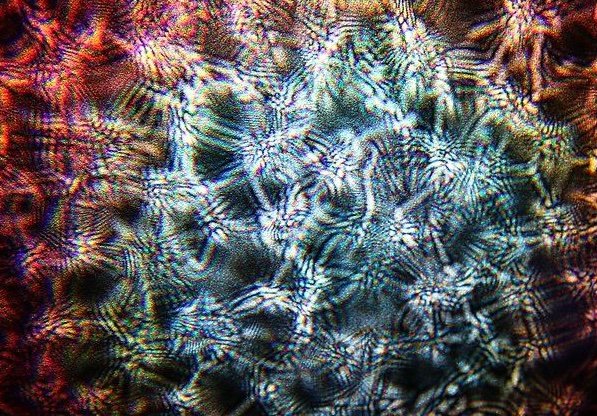
Computational Imaging and Processing with High Resolution – CIPHR
In the project, the Centre of Photonics and Computational Imaging is established at the UT. The combined application of photonics and computationally intensive data processing allows to enhance the image quality, resolution or add spatial dimension to the image beyond the physical or technical limits of the imaging system. By nature, the research is interdisciplinary and embraces the extensive competence of the University of Tartu in optics, spectroscopy, mathematics, computer science and their applications.
Coordinator: Kenneth Tuul
Period: 1 October 2019 – 30 June 2025
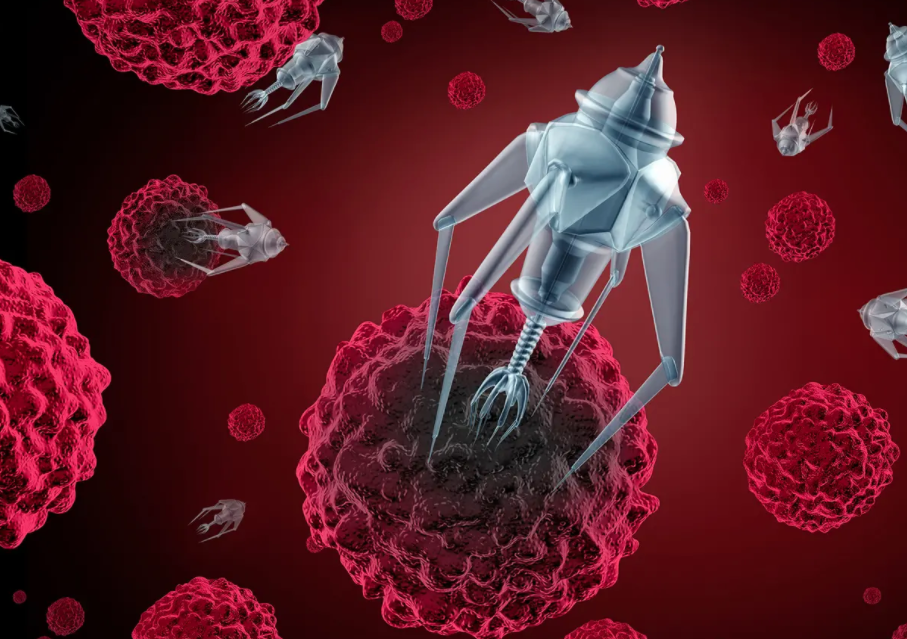
Materials Research in Extreme Environments – MATTER
The project focuses on nanoscale material behaviour in complex environments and upscaling of control of nanomaterial for interdisciplinary and widespread use. This enables breakthrough research in biomedicine, renewable energy, radars, battery technology, materials science and many other areas.
Project leader: Andreas Kyritsakis, Associate Professor of Materials Research in Extreme Environments
Period: 1 July 2019 – 30 June 2024

E-governance and digital public services – ECePS
The project aims to strengthen the Centre of IT Impact Studies (CITIS) so it can act as a world leader in research on e-governance, public e-services and data-driven public innovation.
Project leader: Robert Krimmer, Professor of E-governance
Period:1 September 2019 – 31 August 2024
Completed ERA Chair projects
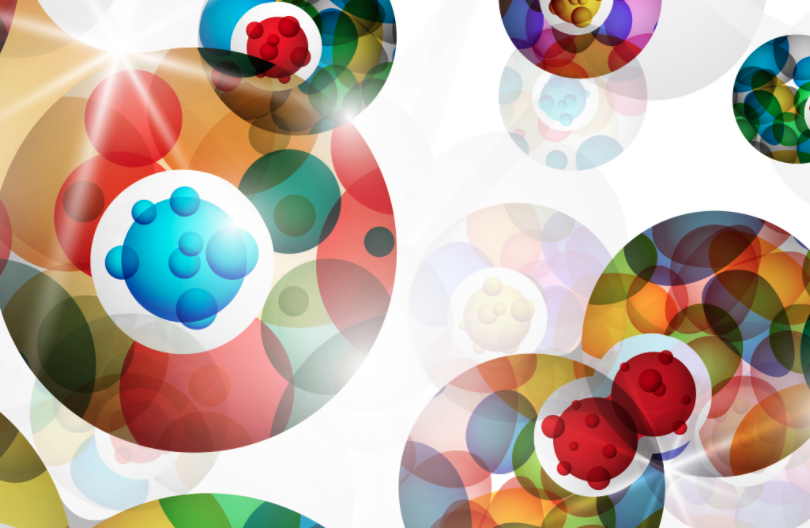
ERA Chair of Translational Genomics and Personalized Medicine – TransGeno
The project applies innovations from genomics to the diagnostics and therapies of various diseases. The focus is on chronic inflammatory and degenerative diseases. New technologies enable scientists to understand complex diseases and help find new treatments.
Project leader: Alireza Fazeli, Professor of Clinical Genomics and Personalized Medicine
Period: 1 July 2015 – 31 August 2023
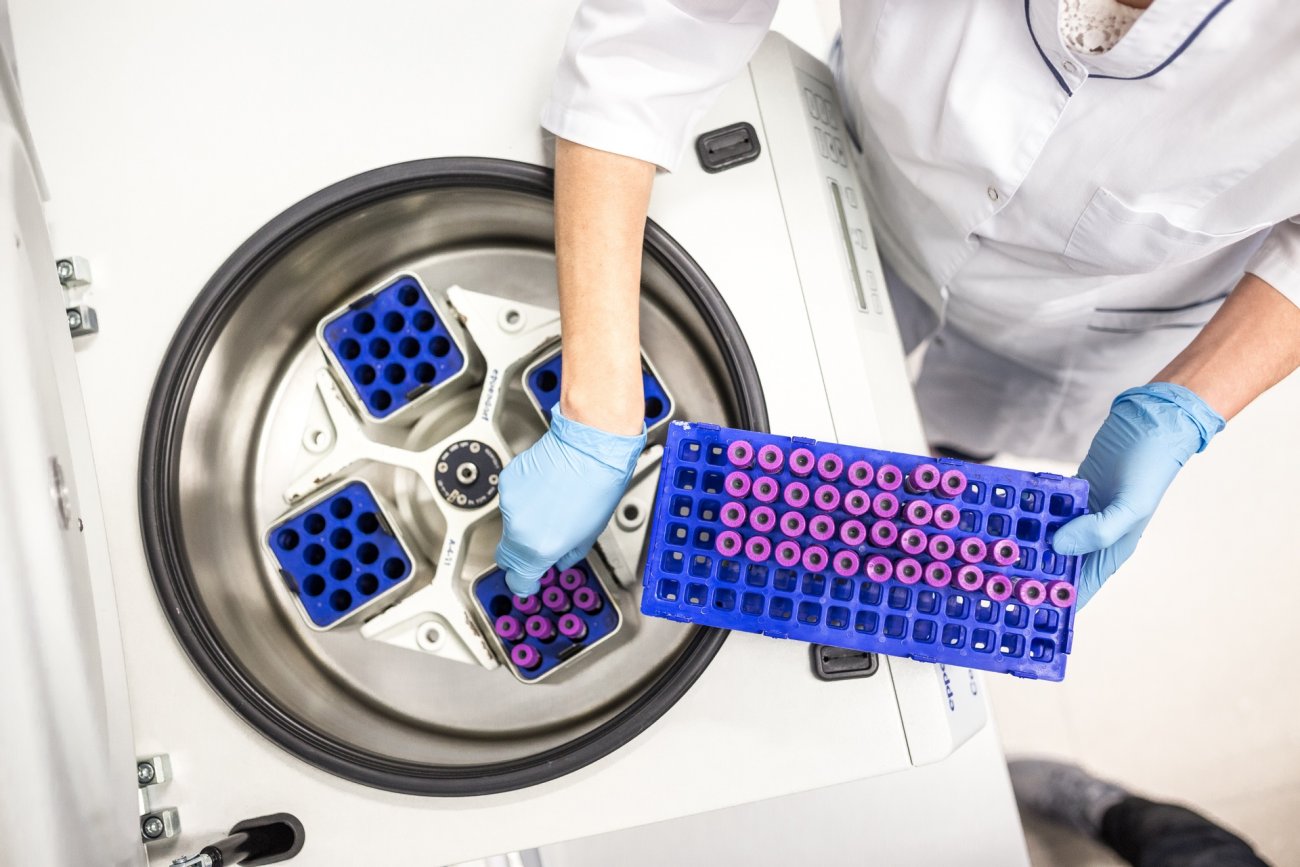
Centre for Genomics, Evolution and Medicine – cGEM
For the prevention and treatment of diseases, it is important to know how the different genetic variants created during evolution affect the life of people in modern times. cGEM hopes to shed light on that.
Project leader: Jon Anders Eriksson, Associate Professor of Interdisciplinary Research in Genomics
Period:1 September 2018 – 31 August 2023
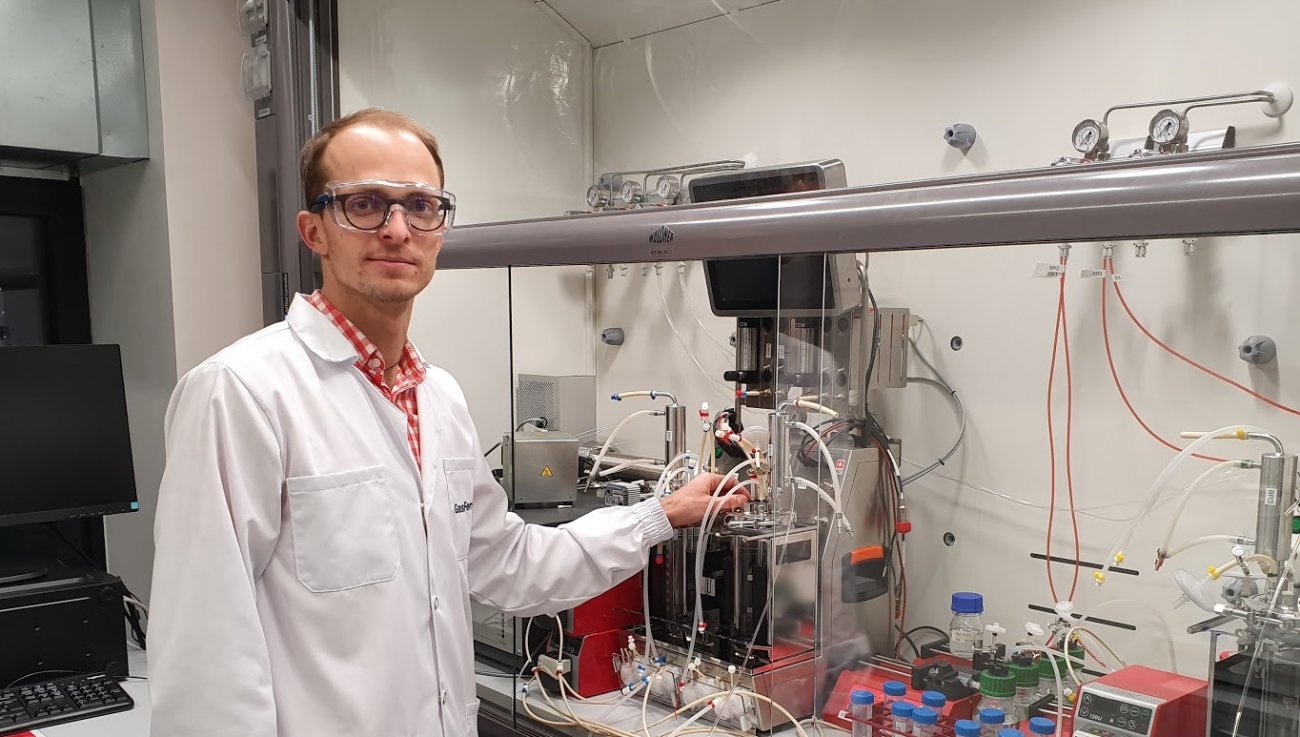
ERA Chair in Gas Fermentation Technologies – GasFermTEC
The project aims to develop a new research direction for gas fermentation technologies. More specifically, it employs gas fermentation technologies together with systems and synthetic biology methods to address global challenges of biosustainability and a balanced carbon cycle.
Project leader: Kaspar Valgepea, Associate Professor of Gas Fermentation Technologies
Period:1 September 2018 – 31 August 2023
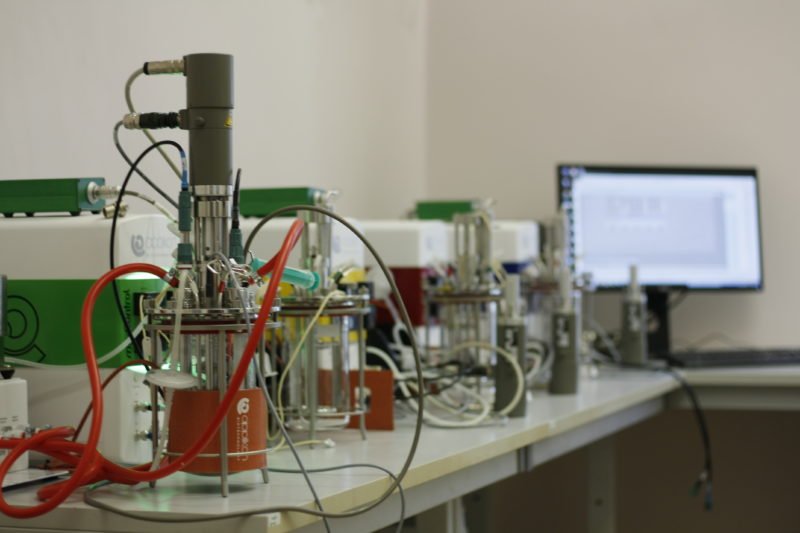
ERA Chair in Synthetic Biology – SynBioTEC
The project combined the experience of four core facilities: synthetic biology, proteomics, cell technology, and applied virology to create a platform for developing synthetic designer cells.
Period: 1 July 2015 – 30 September 2020
Project leader: Petri-Jaan Lahtvee


